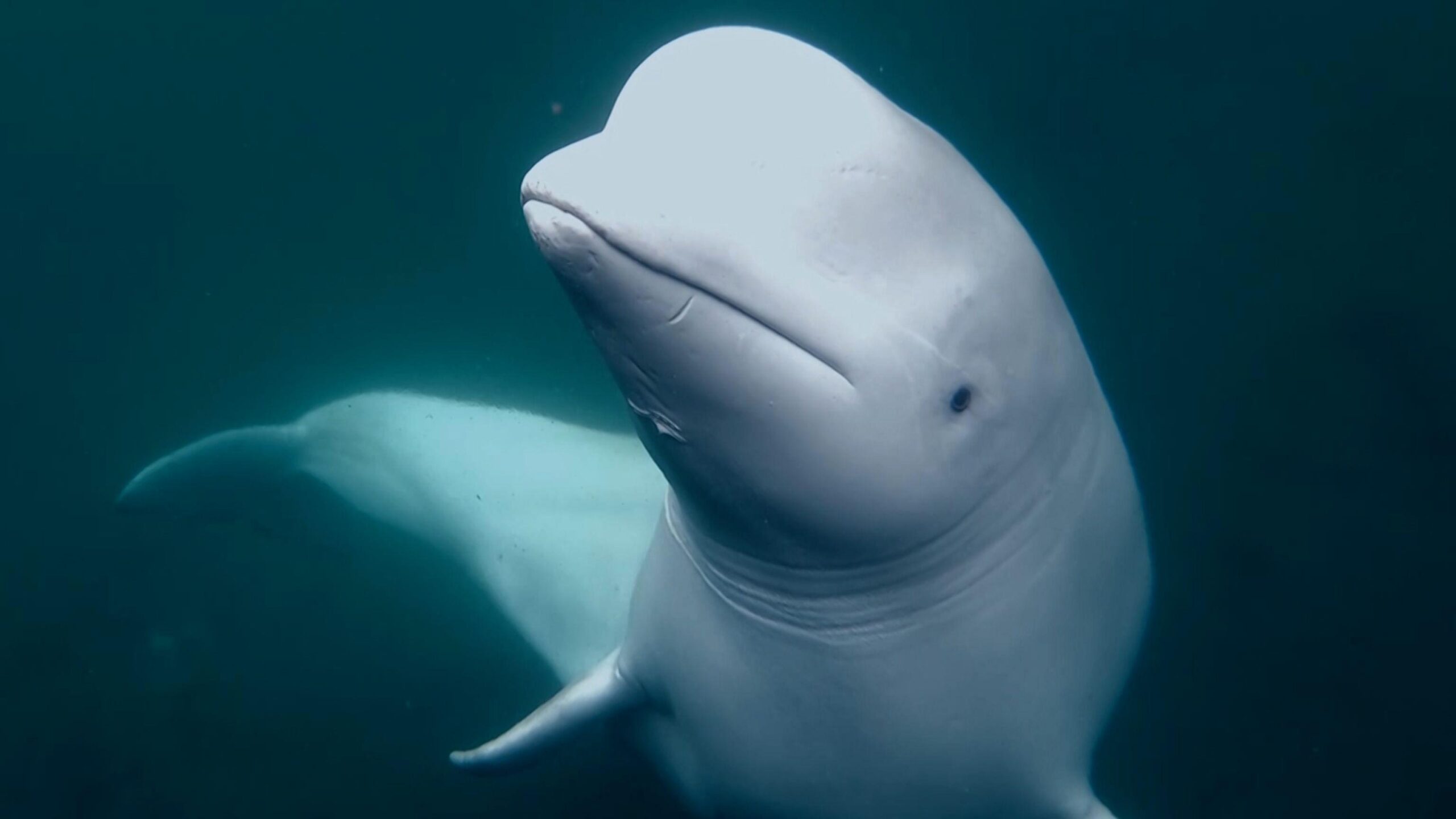The enigma surrounding the appearance of a beluga whale off Norway’s coast, outfitted with a harness, may have been resolved. The white whale, affectionately named Hvaldimir by locals, first garnered attention five years ago amid speculation that it was a Russian military spy.
Now, marine scientist Dr. Olga Shpak, a former researcher in Russia, believes the whale was indeed part of the Russian military program but was not a spy. Instead, she suggests the whale was trained for base security in the Arctic before escaping due to its mischievous nature.
Though Russia has consistently refused to confirm its involvement with the whale, Dr. Shpak is convinced, based on conversations with colleagues in Russia, that Hvaldimir had been trained for military purposes. Her findings feature in the BBC documentary Secrets of the Spy Whale, available on iPlayer and airing on BBC Two.
The whale’s first public appearance occurred five years ago when it swam up to a fishing boat off northern Norway, behaving unusually tame and even rubbing against the boat. The whale was wearing a harness marked with “Equipment St Petersburg,” sparking suspicions of espionage. After the harness was removed by fishermen, the whale swam to Hammerfest, Norway, where it lived for months, unable to hunt on its own but charming visitors with playful behavior.
Eve Jourdain, a researcher from the Norwegian Orca Survey, noted the whale’s habit of nudging anything that resembled a target, further suggesting it had been conditioned. However, its training purpose remained unclear.
Norwegian authorities provided for the whale’s care, naming it Hvaldimir, a mix of the Norwegian word for whale and a reference to Russia’s president. Dr. Shpak’s sources in the Russian marine mammal community quickly identified the whale as one of theirs, named Andruha. Captured in 2013 from the Sea of Okhotsk, Andruha was transferred to a military training facility in the Russian Arctic in 2014.
Dr. Shpak suggests that, while Andruha was intelligent, his rebellious nature led him to abandon his military training and escape. Satellite images near the Russian naval base in Murmansk reveal pens with white whales, possibly confirming their role in security operations.
Russia has a history of training marine mammals for military purposes, but has not directly commented on the specific case of Hvaldimir. Some believe the whale’s attachment to a harness with a contact number refutes any spying claim, as one Russian military figure joked in 2019, “If we were using this animal for spying, do you think we’d attach a mobile phone number?”
Sadly, Hvaldimir’s story ended tragically. After surviving for years along Norway’s coast and even venturing as far as Sweden, the whale’s lifeless body was found on September 1, 2024, near Risavika, Norway. Despite rumors that it was shot, a post-mortem revealed that the whale had died after a stick became lodged in its mouth, confirming that its death was not caused by human activity.
BBC News, The Barents Observer, The Guardian





